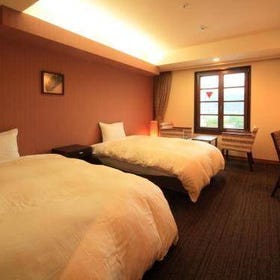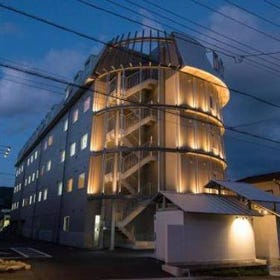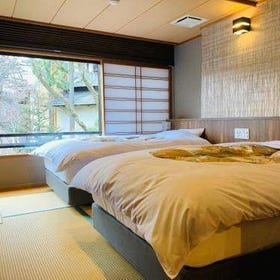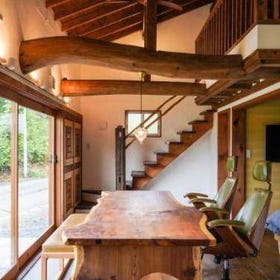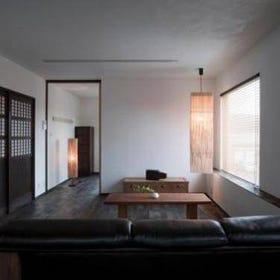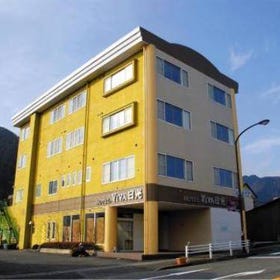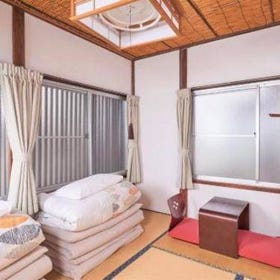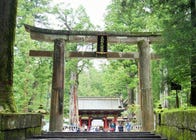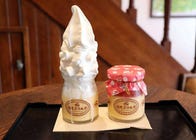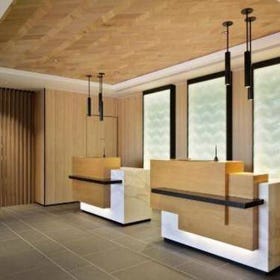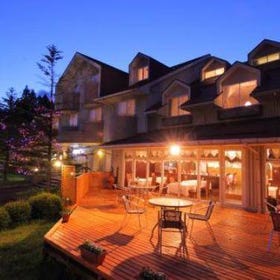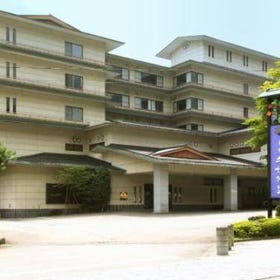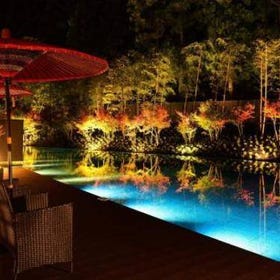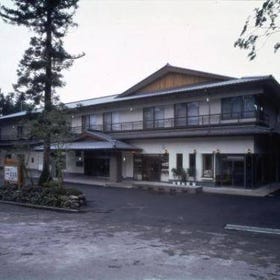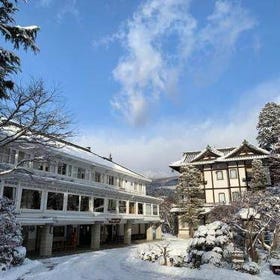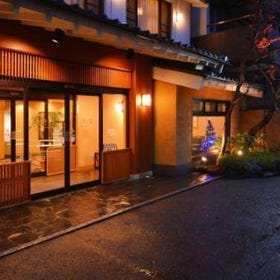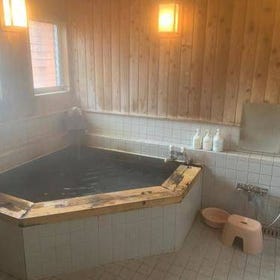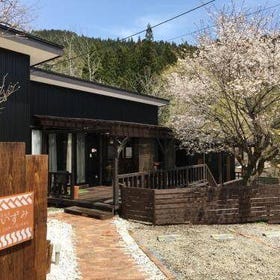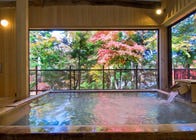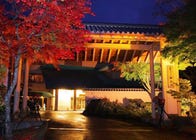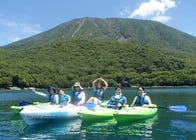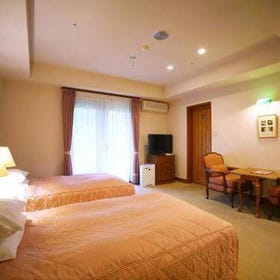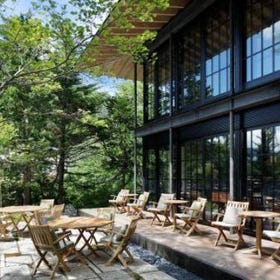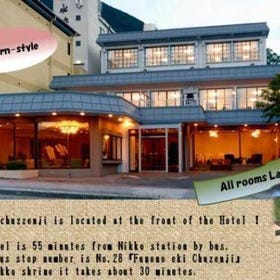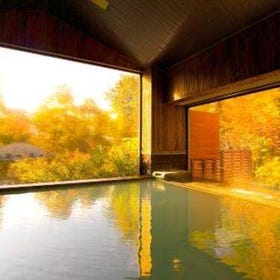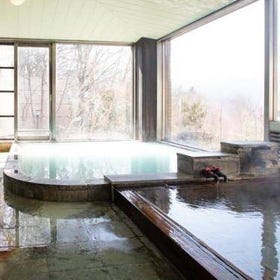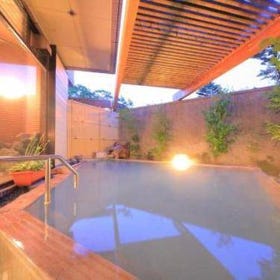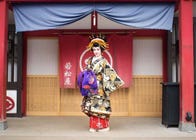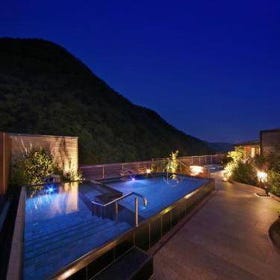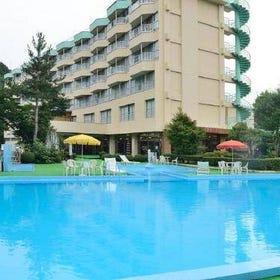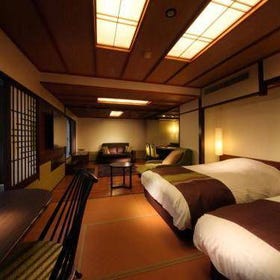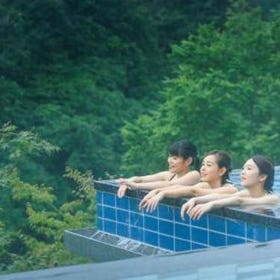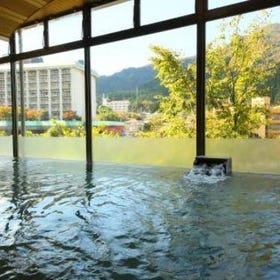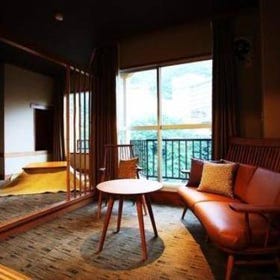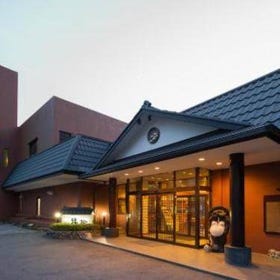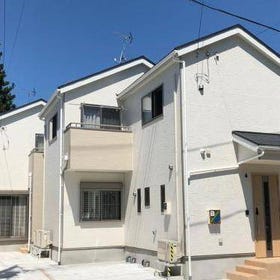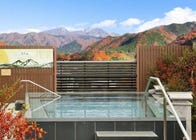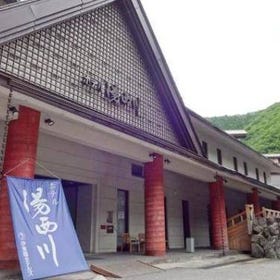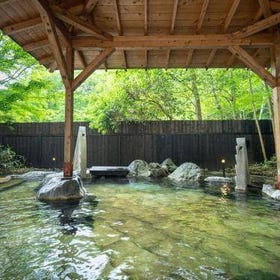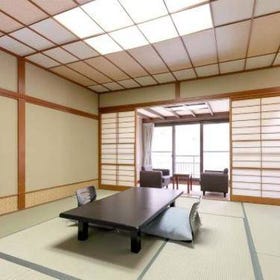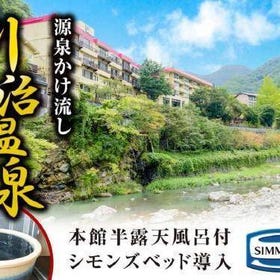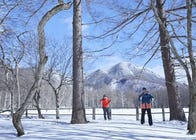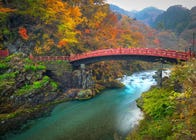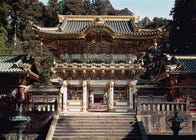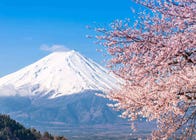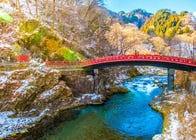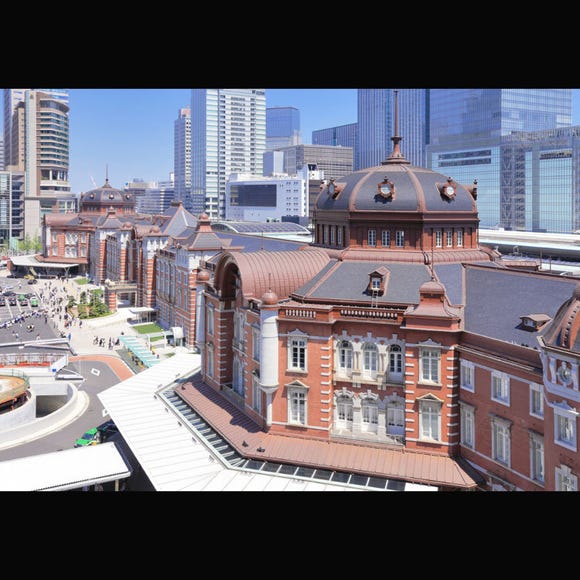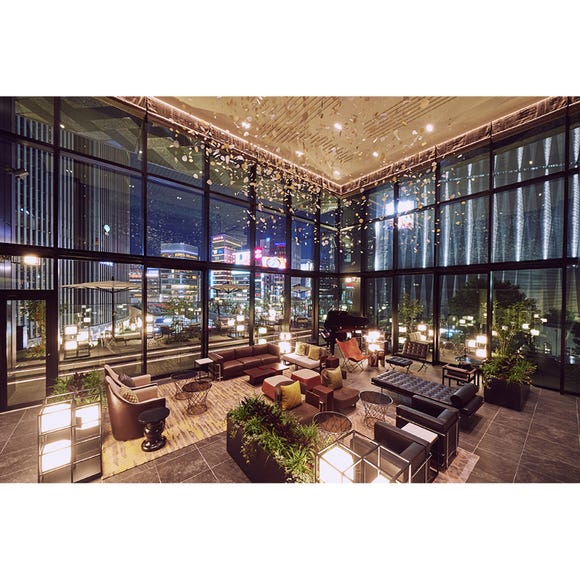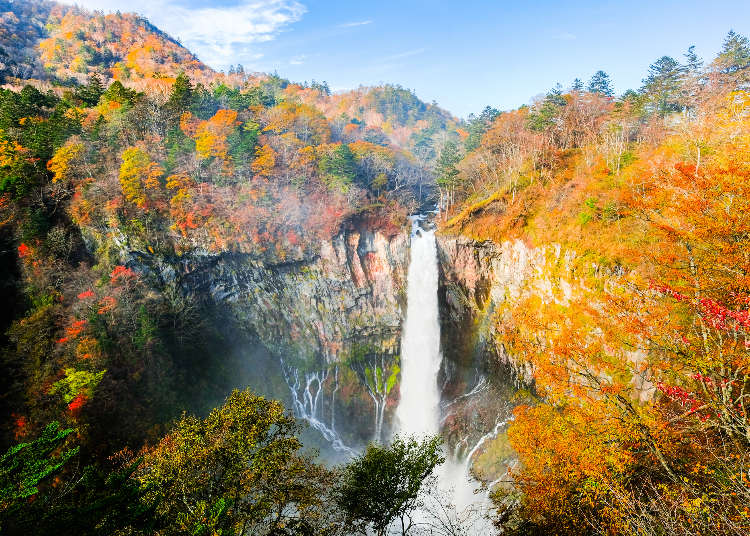
Where to stay in Nikko? The city is a popular tourist destination for its stunning autumn landscapes, Lake Chuzenji, Kegon Falls, and the famous Nikko Toshogu Shrine, part of the UNESCO World Heritage Site.
Whether you want to stay near a World Heritage site, enjoy amazing lake views, or relax in luxury at a hot spring resort, there is an option for every type of traveler. We'll explore important factors to consider when choosing accommodations in various districts of Nikko and highlight nearby attractions to visit during your stay.
Main image: PIXTA
Points to Note When Picking Accommodations in Nikko
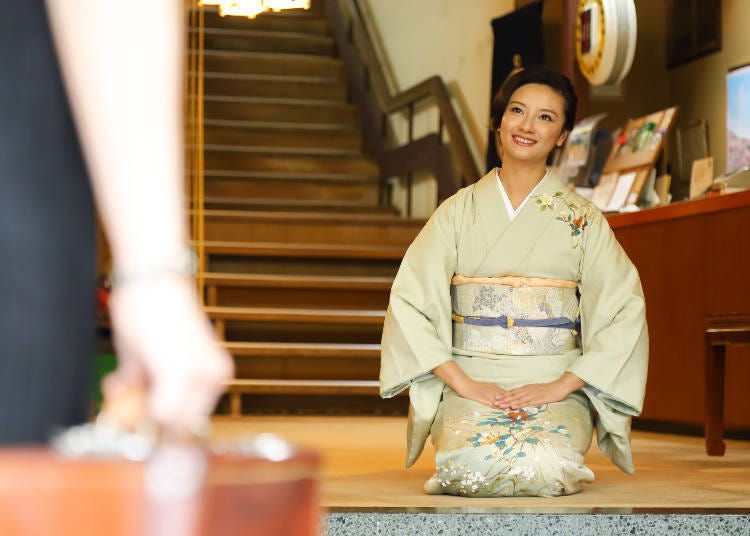
Hotel Accommodation
Nikko's lodging options often include hot spring resorts with public baths and Japanese-style rooms featuring tatami mats where you sleep on a futon mattress.
If you prefer raised beds, choose the Western-style room option during booking. Note that public baths don't allow clothing. Consider a high-end resort with private baths for a more personal onsen experience.
Location Tips
Most Nikko lodgings are near train or bus stations and scenic spots. Be cautious of similar station names with different distances. For example, Kawaji Onsen accommodations are near Kawaji-Yumoto Station, not Kawaji-Onsen Station. Tobu-Nikko and Nikko Stations are close, and Nishi-Sando is the bus stop for Nikko Toshogu. Confirm stations to avoid detours.
Nearby Amenities
Few convenience stores and supermarkets are in Nikko compared to other tourist areas. Research nearby shopping districts and hours if you like post-arrival shopping. Stations often offer shopping opportunities too.
Transport Accessibility
Nikko's rail network is less dense than Tokyo's. Many attractions and hotels rely on buses with 30-minute to 2-hour intervals. Missing a bus can cause delays, so research bus times for smoother check-ins on a tight schedule. As buses have limited space, for convenience, try to pack light for your trip around Nikko.
Recommended Accommodations of Nikko by Area
Now let's take a closer look at tourist-friendly accommodations and must-see hotspots in Nikko, sorted by the five general areas of Nikko Station / Tobu-Nikko Station, Nikko Toshogu, Lake Chuzenji, Kinugawa, and Yunishikawa Onsen / Kawaji Onsen.
1. Nikko Station / Tobu-Nikko Station
The region's main transport hubs are Nikko Station on the JR Lines and Tobu-Nikko Station on the Tobu Railway. The two stations are about five minutes away from each other by train, and both can be reached quickly and conveniently from areas within Tokyo City in about two to two-and-a-half hours by train.
Tobu-Nikko Station serves as the main gateway to Nikko. As expected, there's a range of accommodation options to choose from, catering to various budgets and styles, in close proximity to the station. Many buses that connect different areas around Nikko also make stops here.
Opting for a hotel in this vicinity ensures smooth check-ins without frequent train or bus transfers, regardless of your origin or destination. If you want to avoid lugging heavy luggage for extended periods, considering a stay here is a sensible choice.
- Well-connected with Tokyo, only about 2—2.5 hours by train with one transfer on the JR Lines or Tobu Railway.
- Well-connected to many places of interest in Nikko by bus, including popular sites such as Nikko Toshogu, Lake Chuzenji, and Senjogahara.
- Able to experience Nikko in its full, unadulterated glory right out of the station gates. The area also features unique retro decor combining elements of Eastern and Western aesthetics.
- Plenty of restaurants and souvenir shops to visit nearby. Tourist information readily available right at the station itself.
Recommended Accommodations Around Nikko Station / Tobu-Nikko Station
・Hot Spring Resorts
・Apartments, Villas, Homestays
・Guesthouses and Hostels
2. Nikko Toshogu Shrine
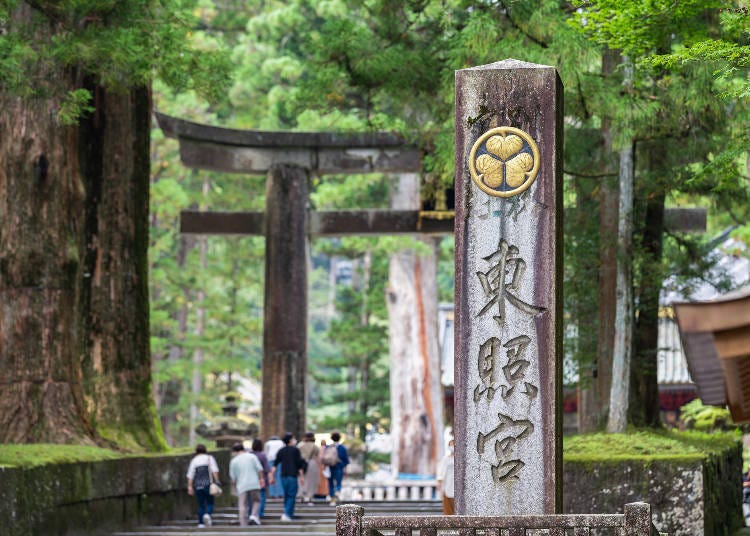
Said to be the most iconic landmark of the city, Nikko Toshogu Shrine and the nearby Nikkozan Rinnoji, Nikko Futarasan Jinja along with a few other buildings are part of the UNESCO World Heritage Site Shrines and Temples of Nikko. As you may have already guessed, the area containing these places is indeed the main tourist attraction of Nikko. It takes about 15 minutes to reach here by bus from the Tobu-Nikko Station and its popularity means there are accommodations of all types here for your picking. The approach leading to Toshogu Shrine is lined with booths and eateries selling local snacks and meals, so there's always something to do either before or after your Toshogu visit. If you're staying nearby, you can bring any tasty tidbits you've purchased directly back to the room to enjoy at leisure too!
- About 15 minutes from Tobu-Nikko Station by bus with short intervals. About 4 hours from Tokyo.
- World Heritage Sightseeing Bus takes you to nearby places of interest such as Nikko Toshogu Shrine, Nikkozan Rinnoji, and Nikko Futarasan Jinja.
- Easy to travel to other tourist hotspots in Nikko using other public and sightseeing buses in the vicinity.
- Mind-boggling amount of eateries, restaurants, and souvenir shops peddling must-try local delights such as yubamanju (buns wrapped in tofu skin), yuba soba (buckwheat noodles with tofu skin), and Nikko pudding.
Recommended Accommodations near Nikko Toshogu
・Hot Spring Resorts
・Guesthouses and hostels
3. Lake Chuzenji
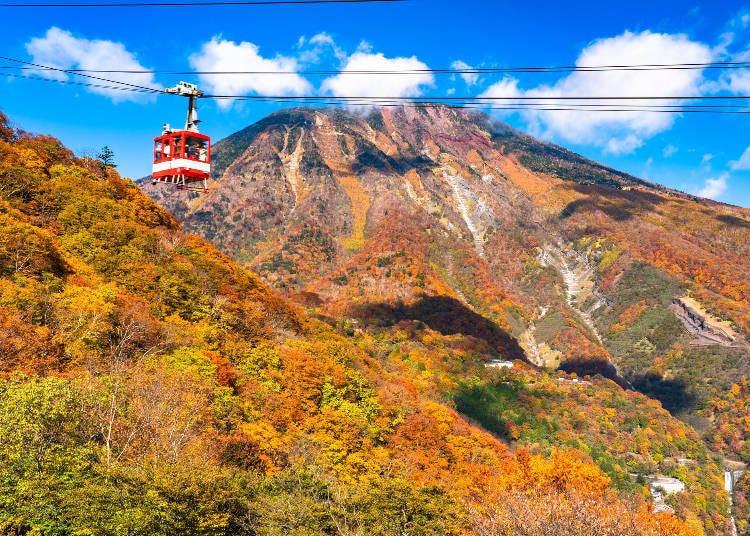
Lake Chuzenji is about 45 minutes from Tobu-Nikko Station by bus. En route, you'll see the well-known Irohazaka, a winding road that takes you through the lush and beautiful foliage of Nikko's maple trees while you relax comfortably in your own seat in a vehicle.
As the entrance to the area of Okunikko, you'll also find natural scenic sights such as Kegon Falls and Ryuzu Falls near Lake Chuzenji.
From one of the many observation decks scattered throughout the area, admire the scenery from a bird's eye view! We highly recommend that you consider splurging a little by checking into a luxury hotel near Lake Chuzenji to fully immerse yourself in Nikko's peaceful natural wonders and serene waterfront views.
- Many luxury accommodations around the lake offering incredible views along with meticulously prepared Japanese-style food and hospitality.
- The most well-known site for autumn leaves admiration in Nikko. You haven't been to Nikko if you haven't seen Lake Chuzenji surrounded by mountains upon mountains of brilliantly red maple leaves!
- Located near scenic sites like Irohazaka Route, Kegon Falls, Akechidaira Ropeway, Ryuzu Falls, and Senjogahara.
- Leisure ships, swan boats, and canoes available for cruising around Lake Chuzenji on water.
Recommended Accommodations in Lake Chuzenji
・Hot Spring Resorts
4. Kinugawa
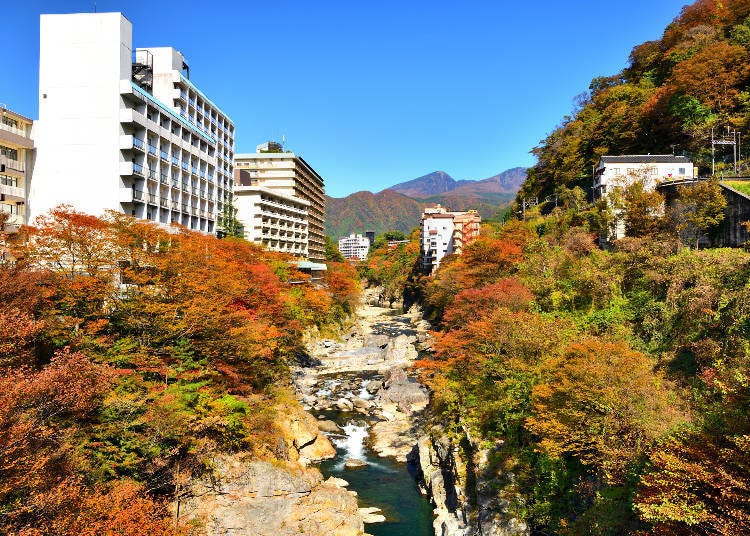
One of the most well-known hot spring regions of Tochigi, it only takes about two hours to get here from Shinjuku and Ikebukuro in Tokyo via direct train, or about one hour from Tobu-Nikko with one transfer at Shimo-Imaichi. As a traditional hot spring district with a long history, visitors can expect to see a quaint but harmonious blend of olden Japanese-style inns, renovated resorts, and large buildings on both sides of the main street. Despite the old-fashioned vibe of the area, the simple beauty of Kinugawa remains clear and those serious about quality soaking will certainly enjoy the healthy spring waters and elegant atmosphere this place exudes.
- Highly accessible, only about two hours from Tokyo and one hour from Tobu-Nikko Station.
- Plenty of hot spring resorts with open-air baths for you to warm up in rejuvenating spring waters while admiring the resplendent scenery.
- Located near scenic sights like Kinutateiwaotsuri Bridge, Tateiwa Observation Deck, and Furukama Falls. Kinugawa Ropeway offers an incredible panoramic view of the surrounding sights. Strawberry picking is available at farmsteads during favorable seasons. And don't miss the exciting Kinugawa River Boat tour that takes you down the river in old-style wooden boats!
- Also near theme parks like Tobu World Square and Edo Wonderland Nikko Edomura for a fun-filled family day out for those traveling with children.
Recommended Accommodations in Kinugawa
・Hot Spring Resorts and Hotels
・Vacation homes and villas
5. Others: Yunishikawa Onsen and Kawaji Onsen
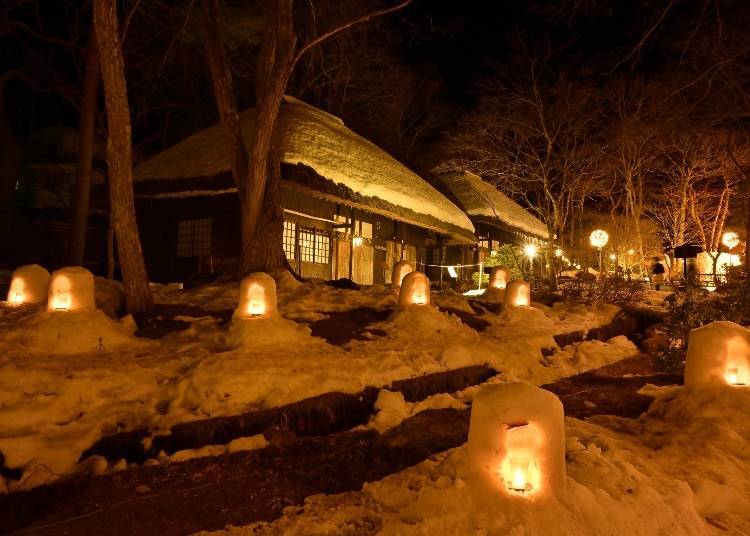
While Kinugawa is one of the larger and more well-known hot spring resorts of the area, smaller areas like Yunishikawa and Kawaji are also ideal destinations for nature-loving travelers desiring to delve deeper into what Nikko has to offer. For example, Yunishikawa holds a Snow House Festival every winter that comes with what is heralded by many as "a scene you'll want to see at least once in your lifetime"! During this time, thick snow domes and snow-covered straw houses are set aglow during the night with lamps to create a sight that looks straight out of the pages of a fairytale. Kawaji is located upstream from Kinugawa and most of its accommodations are near Kawaji-Yumoto Station, which is a tad quieter than Kinugawa. Perhaps that's something that appeals to your inner ascetic?
- Hot spring resorts has lesser human traffic. Perfect for those who prefer to soak in peace away from noise and clamor.
- Connected to Tobu Railway trains. Both Yunishikawa Onsen and Kawaji Onsen are about 40 minutes to an hour away from Shimo-Imaichi Station on the Tobu Railway. (Intervals between trains are quite long so be sure to look up the timetable beforehand!)
- Peaceful and quiet environment with pristine landscapes that become especially beautiful during autumn. Yunishikawa Onsen's Snow House Festival during winter is a must-see event.
- Ryuo Gorge, Setoai Valley, Kinunuma Swamp, and other natural sights to enjoy. Heike no Sato is a good destination for history buffs. Every June, Yunishikawa holds the Heike Taisai festival, a large-scale parade that may tickle your cultural curiosity.
Recommended Accommodations in Yunishikawa and Kawaji
・Yunishikawa Onsen: Hot Spring Resorts and Hotels
・Kawaji Onsen: Hot Spring Resorts and Hotels
Types of Nikko Accommodations
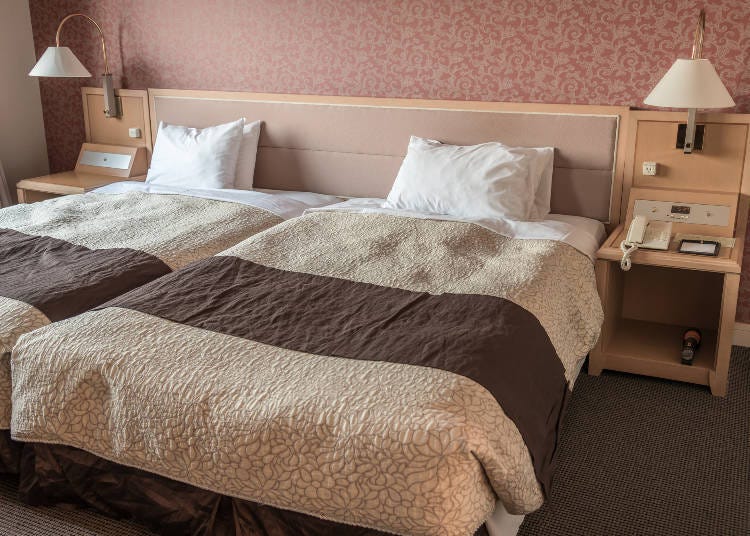
1. Ryokan / Hot Spring Resorts in Nikko
The most commonly seen accommodation type in Nikko, especially in the areas of Kinugawa, Lake Chuzenji, and other hot spring districts.
Some of these inns may have a rich heritage or trace their origins back to ancient times. Nevertheless, one trait they all share in common (with a few exceptions) is that guests can look forward to soaking in hot springs located right on the hotel grounds.
Another feature of these resorts is their Japanese-style tatami mat rooms, where guests are expected to sleep in futons rolled out on the mats as is tradition.
Not too comfortable with the idea? Then be sure to look for a hotel offering Western-style rooms with beds.
Also, if you have the budget for it, consider getting a room in a luxury Japanese-style hot spring resort. Every detail in the decor of these places is designed to make each step of your journey through their doors an experience in itself, making your stay worth every yen!
2. Hotels and Business Hotels in Nikko
The areas around Tobu-Nikko Station, Nikko Station, and Nikko Toshogu have the highest concentration of these types of accommodations, although not every hotel will have hot spring baths within the building for guests.
These hotels have more Western-style rooms than traditional hot spring resorts and should be the go-to choice for travelers with busy itineraries who will feel better sleeping on an elevated bed after a tiring day of sightseeing activities, as the likelihood of accidentally booking a wrong room type is much lesser.
3. Vacation Homes, Villas, Homestays in Nikko
Most vacation homes and homestays come equipped with a kitchen, utensils, a private bath area, and common living areas, which means they are perfect for family groups or large travel groups hoping to have a good time with each other without wondering if they might be making too much noise for the next-door neighbor's liking.
Some homestays provide breakfast and English-speaking staff for guests' convenience. Since Nikko's lodgings are mostly hot spring resorts, however, this type of accommodation is difficult to find, and the price disparity may be quite big. Research is a must if this is your preferred choice!
4. Hostels in Nikko
The low cost of this type of accommodation is its biggest draw, though you'll have to share bathrooms, kitchens, and bedrooms with other travelers.
Then again, those who love exchanging information with other travelers will very much prefer this setup, especially since Nikko is full of historical and cultural places of interest to talk about! Sharing travel tips and life hacks with other like-minded individuals can be quite fun and exciting too!
Do take note, however, that there are very few hostels in the Nikko area, and some digging may be needed to locate one that suits your preferences.
Peak Travel Period in Nikko
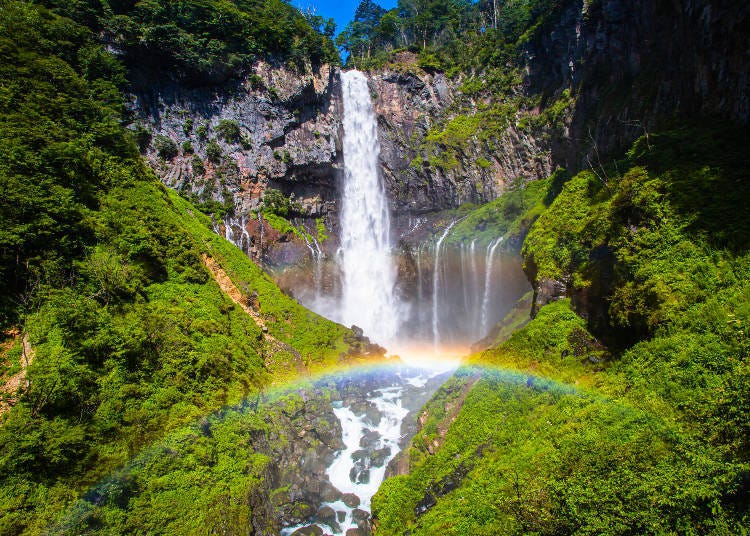
Since most travelers to Nikko come here for Nikko Toshogu Shrine and other world heritage sites of its kind, visitors pour into the region basically all year round.
That said, Nikko's amazing autumn scenery all but guarantees a massive surge in numbers during the fall season. More information about Nikko's peak traveling season can be found below, which we hope can serve as a helpful reference for your plans.
August (Obon and summer vacation)
Most of Japan is on summer vacation in August, and the Obon consecutive holiday also falls on this month. The result is an increase in the number of visitors to Nikko because it is usually cooler than Tokyo City during summer. Since it only takes about two to three hours to reach Nikko from the city and the place offers unique sights for city-dwellers, such as an abundance of nature and world heritage sites, many Japanese tourists tend to pick this area as their August vacation spot. Avoid weekends and national holidays if you're trying to keep your trip as quiet and restful as possible this month.
October and November (Autumn)
Nikko's forest canopies start putting on their fall colors between October to November each year. This applies to areas in and around Nikko Toshogu Shrine, Lake Chuzenji, Kegon Falls, Senjogahara, Irohazaka, and other scenic sights. As you can imagine, the result is a breathtaking array of orange hues that are heartwarming by day and fantastical by night. It can be said that this is the period where Nikko sees the most number of visitors, so accommodations will be difficult to procure. If you must come during these months, plan and book your lodgings and transportation by January or February to ensure a smooth trip. Avoid going out on weekends wherever possible, and be prepared to encounter many more people than you may have anticipated!
January (Winter)
It snows during winter in Nikko, and the icy veneer left behind on popular places of interest such as Nikko Toshogu Shrine, the Futarasan Jinja torii (traditional Japanese temple gates) and sacred bridge, waterfalls, and ropeways are quite magnificent to behold. The Yunishikawa Onsen Snow House Festival is also well-known enough to attract a substantial amount of visitors during the winter days it is held. Overall, expect to see an uptick in Nikko's human traffic this season. Try to make arrangements for your trip to winter Nikko as early as possible to avoid any potential hassle that may take time and energy away from your enjoyment of the region!
Can't seem to find available rooms in Nikko? Try this!
If you're really unfortunate enough to miss out on the Nikko accommodation of your choice, don't be too disappointed. After all, Nikko is accessible from Tokyo City by a short two to three hour train ride! Therefore, one alternative you may consider is staying in a Tokyo hotel and going on a day trip to Nikko instead. Some hot spring resorts offer packages that allow you to soak in their baths without needing to stay the night. Take a look at the following districts in Tokyo conveniently connected to Nikko that you can consider booking a room in instead!
Asakusa
This station is served by trains on the Tobu Railway that travel directly to Tobu-Nikko Station with no transfers needed. Purchase either a Nikko Pass All Area or Nikko Pass World Heritage Area to cover your fares for Tokyo to Nikko and transportation services in Nikko while you're there. Highly recommended for family or larger travel groups for the cost savings alone!
Around Tokyo Station and Ueno
Alternatively, stay somewhere near Tokyo Station or in the Ueno district and make use of the Tohoku Shinkansen and Yamagata Shinkansen on the JR Lines to Utsunomiya Station, then transfer to a train on the JR Nikko Line to Nikko Station.
In less than two hours, you'll be stepping on Nikko soil, making this the fastest way to travel to Nikko from Tokyo using public transport. If you have a JR Tokyo Wide Pass, you won't punch a large hole into your transport budget either. Time-conscious travelers will definitely want to keep this option in mind!
Translation by: Huimin Pan
- Area
- Category
*Prices and options mentioned are subject to change.
*Unless stated otherwise, all prices include tax.
Popular Tours & Activitiess
Recommended places for you
-

The Best of Japan's Flavors and Fun! Don Quijote's New "DONKI MEMORIES" Project is Mind-Blowing
-

From Haneda to Monchhichi's Hometown! Scenic Monorail Ride & Katsushika 'Old Downtown' Walk
by: Guest Contributor
-
Ad

What Makes Japanese Yakiniku So Darn Good? Guide to Cuts, Heat, and Wagyu Know-How
-
Ad

5 Recommended Wagyu Yakiniku Restaurants in Tokyo: Signature Dishes, Premium Beef, and Secret Sauces
-

Top 3 OSHI MAPs for the Best Matcha and Sweets in Tokyo
by: Guest Contributor
-
Ad

In the Heart of Japan: Why Gifu City Deserves a Spot on Your Itinerary (Cormorant Fishing, Gifu Castle, Nightlife & More!)
-

Exploring Tokyo: 4 Must-Visit Spots around Tokyo Station
-

3 Cheap Hotels in Shinjuku Tokyo: How To Get Secret Rates at Otherwise Pricey Spots! (Under $50)
-

Tokyo Station Top 10 Sweets Ranking!
-

mesm Tokyo, Autograph Collection: Mesmerize Your Senses at Tokyo Bay's Luxury Hotel
by: Andy Cheng
-

MUJI Hotel Ginza: Inside the Unique Inn With an Authentic MUJI Experience!
-

Healthcare in Japan for Tourists: What to Do When You Get Sick or Injured in Japan
- #best ramen tokyo
- #what to buy in ameyoko
- #what to bring to japan
- #new years in tokyo
- #best izakaya shinjuku
- #things to do tokyo
- #japanese nail trends
- #what to do in odaiba
- #onsen tattoo friendly tokyo
- #daiso
- #best sushi ginza
- #japanese convenience store snacks
- #best yakiniku shibuya
- #japanese fashion culture
- #best japanese soft drinks













